American Culture
The following section on American Culture is taken directly from the International Exchange Student Handbook created by the Study Abroad Office at NC State and is used with permission.
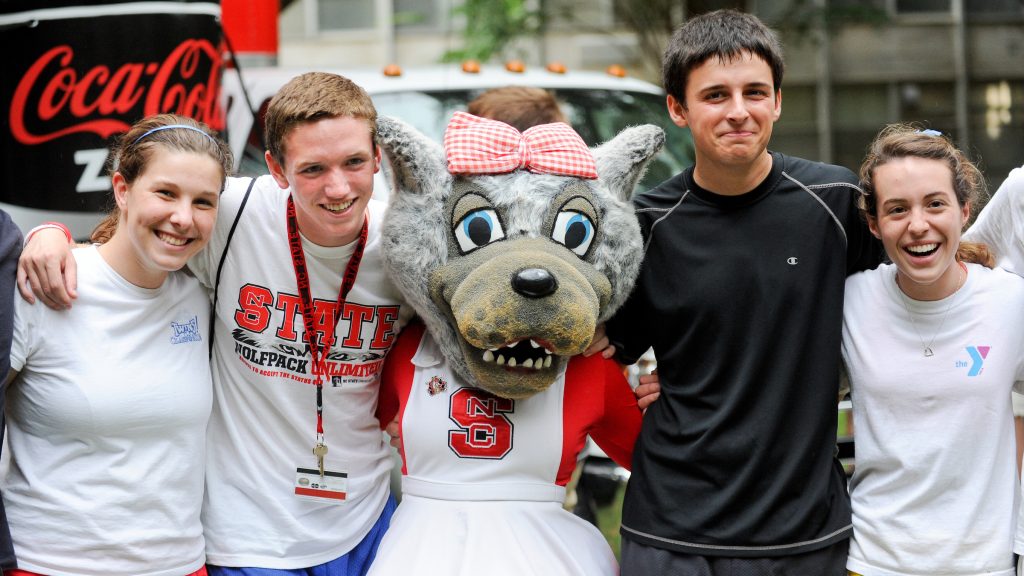
As someone who has grown up in another culture, you naturally have your own set of values and beliefs. You will probably meet many Americans who are interested in your culture and will ask you to explain why people from your country behave in certain ways. Similarly, you will find that many American social customs and beliefs seem strange to you. Part of the fun of spending time in another country is learning the way people interact and the unique features of the culture.
Americans, like any group of people, are very diverse, and it is difficult to generalize about an entire nation of nearly 300 million people! Regional differences, racial and ethnic backgrounds, socioeconomic status, and individual personalities all affect the way that Americans behave and interact. However, there are a few general values that many international students find to be particularly striking about Americans and America in general.
Attitudes and Beliefs
You will find almost every attitude imaginable in the U.S. However, there are some characteristics that a majority of Americans display in some form or another. Here are a few examples:
Pride
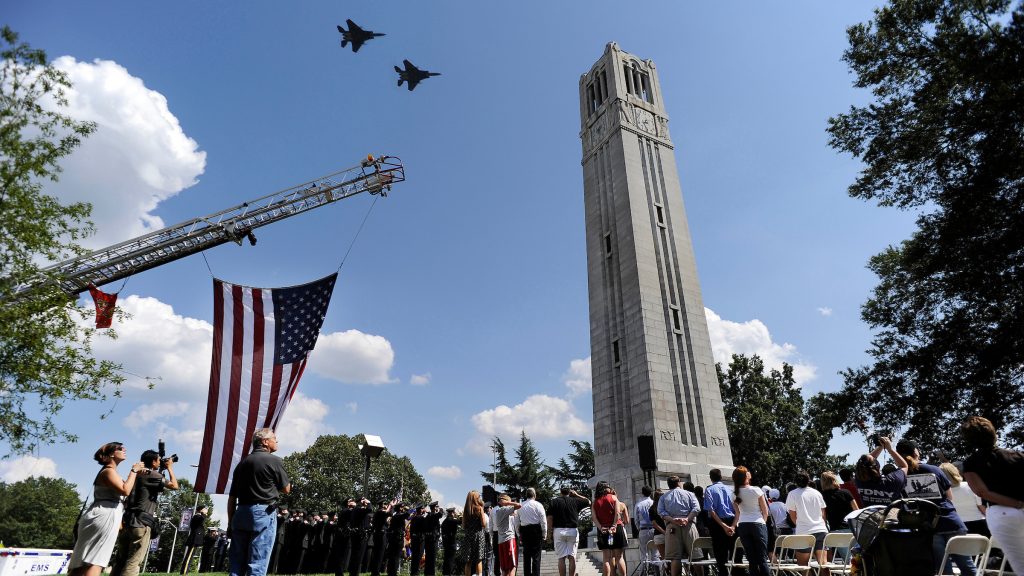
Americans take pride in the achievements and accomplishments of themselves and their nation. Although many Americans are also quick to criticize the shortcomings of their country, they often do not appreciate it when a foreigner initiates or joins in complaining about the U.S. in what seems to be a critical manner. You may want to approach political discussions cautiously, especially with people you do not know well.
Equality
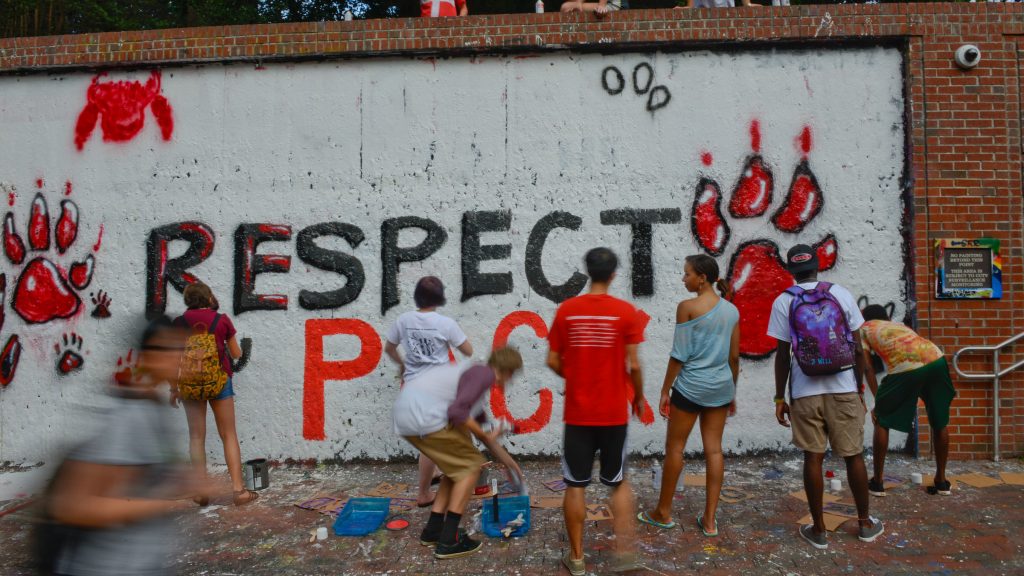
Americans generally express strong belief in the principle that all people are created equal, with equal opportunities, yet most Americans will admit that discrimination (racism and sexism) still exists in the U.S. Americans tend to enjoy stories of “self-made” individuals who rise from poverty to riches through hard work and initiative. Most Americans believe that individuals control their own destinies. Children are told “you can be whatever you want to be”.
Religion
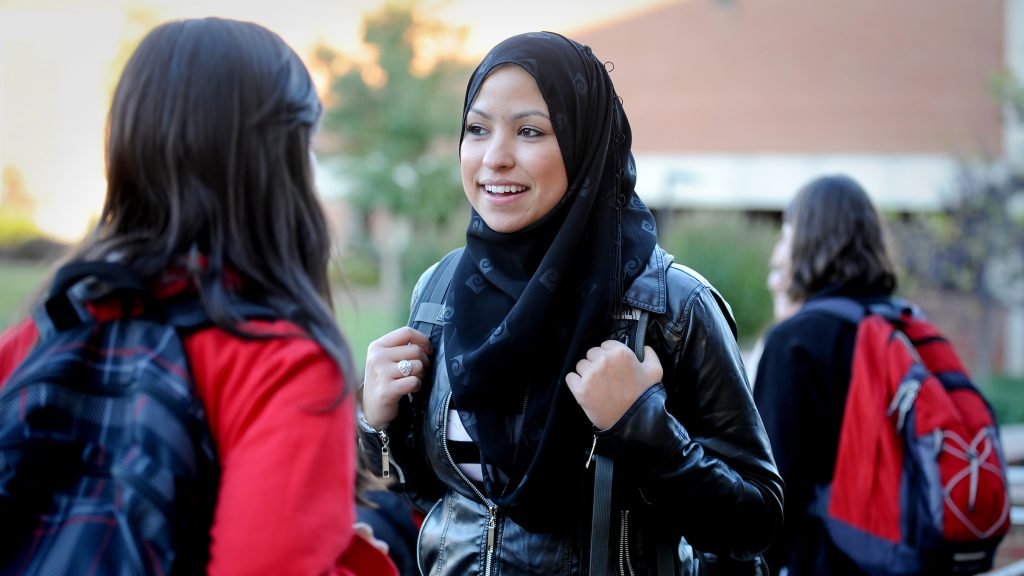
Individual freedom is highly valued by most Americans. Religious tolerance is expected, and although many Americans are very religious, others are not religious at all. Not all holidays are holy days; even holy days such as Christmas and Easter are highly secularized.
Cultural Differences
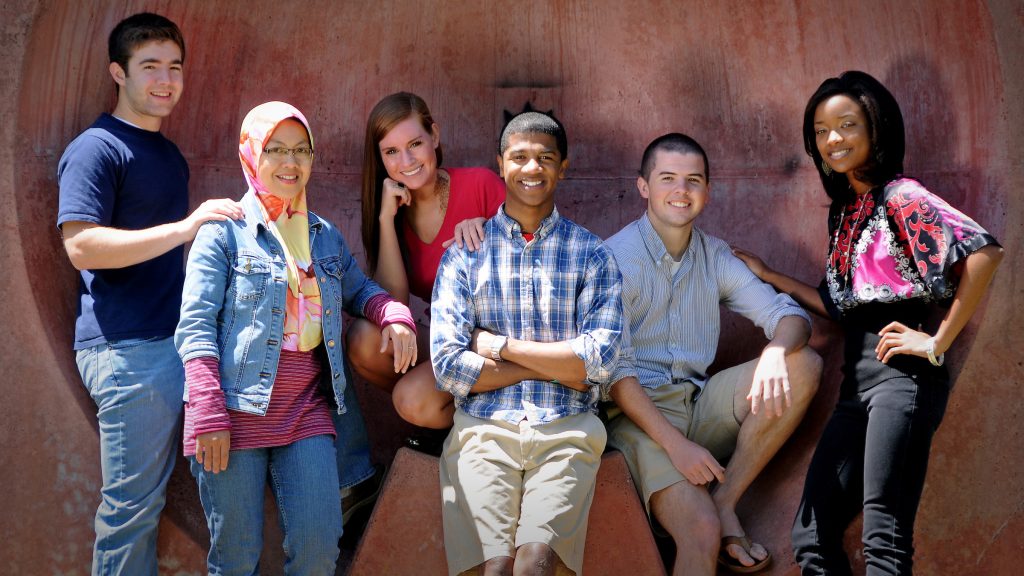
There are Americans who do not appreciate cultural difference, even within our own country. However, many Americans are happy to interact with international visitors, help you adjust to the U.S., and enjoy having discussions and spending time with you.
Conversation
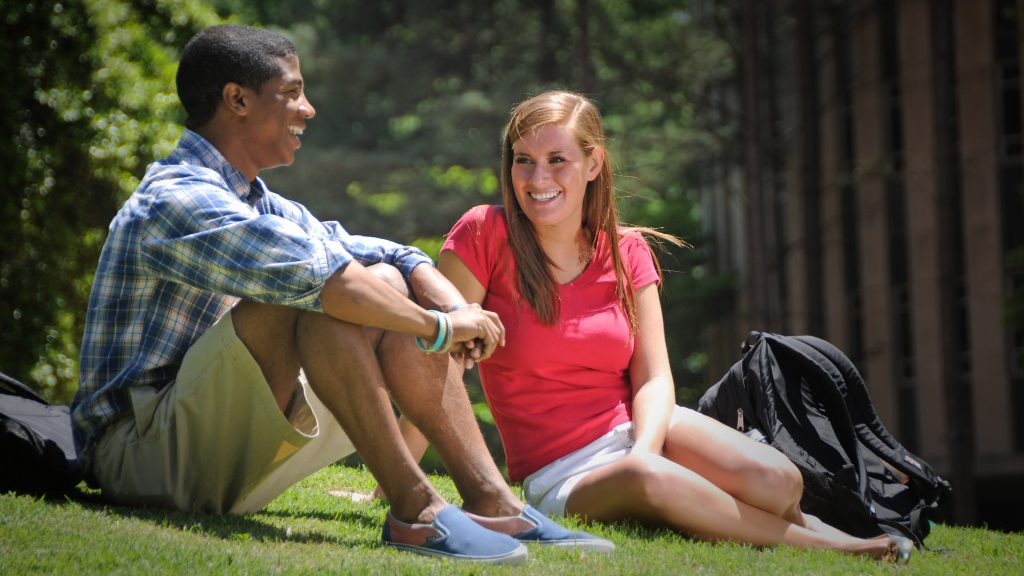
Many Americans consider it inappropriate to discuss serious topics such as religion or politics with casual acquaintances or in social settings. If you want to ask questions about these matters, it’s often a good idea to start by explaining that you don’t want to offend the person, but you are trying to understand more about American culture.
Time
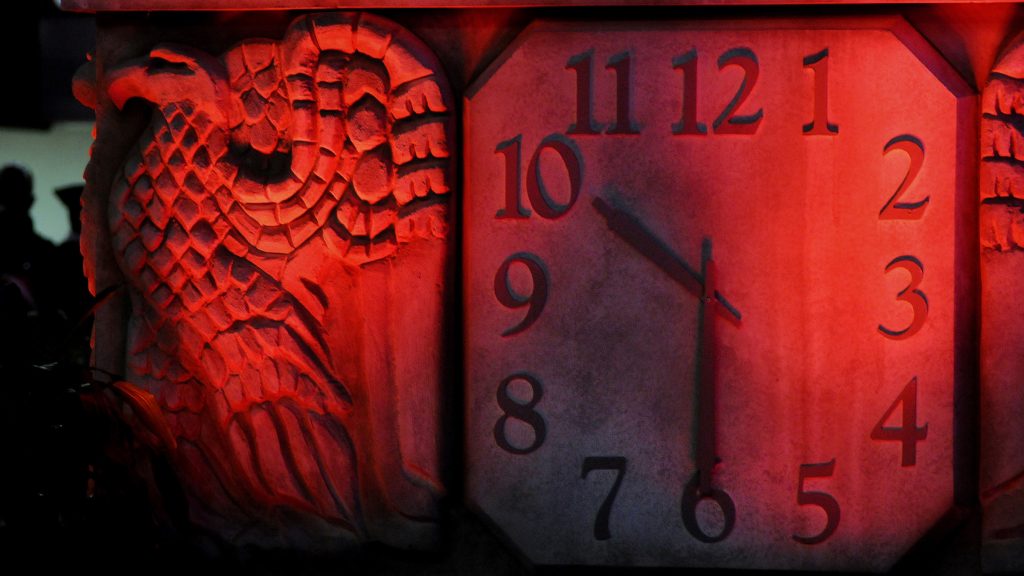
Americans are very concerned with time and efficiency and look for faster and more efficient ways of doing things. Some find it disrespectful to be late. You may find some people are unwilling to meet with you if you are not on time for an appointment or meeting. If you have an appointment at 2:00 pm, plan to be there a few minutes early. If you come to class late, quietly take a seat near the entrance to the classroom to prevent being a distraction.
Dress
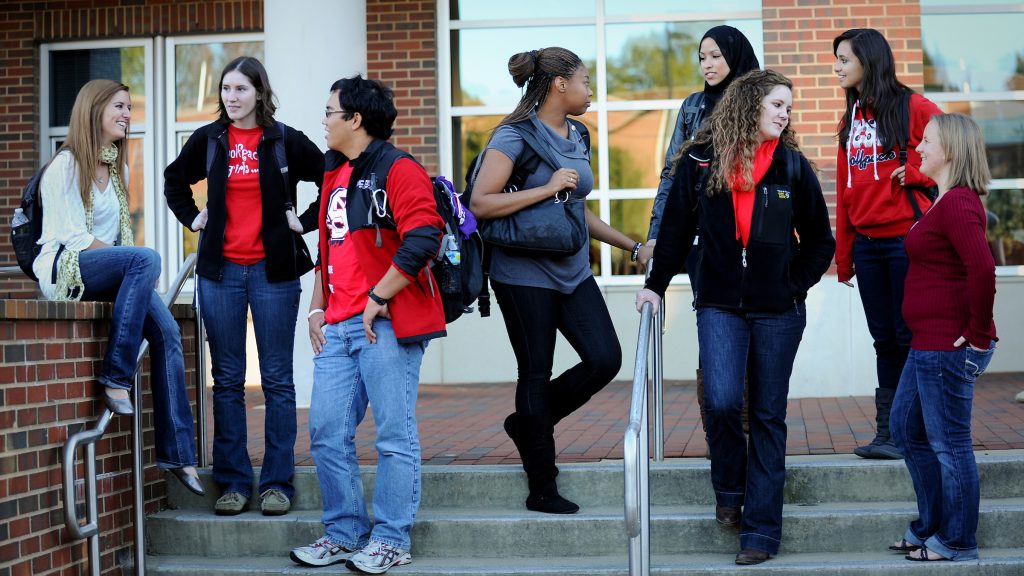
Everyday dress is very casual at most universities. T-shirts and jeans, shorts, dresses, and even pajamas may be seen on campus. Buildings may vary in temperature, so dressing in layers will keep you from getting too hot or too cold while in class. When visiting someone’s home, casual dress is usually appropriate. If you are going to an evening or holiday dinner, you may want to dress more formally, such as wearing a nice shirt and pants (men) or a dress (women). If you are uncertain about what to wear, ask another student or friend.
Meals
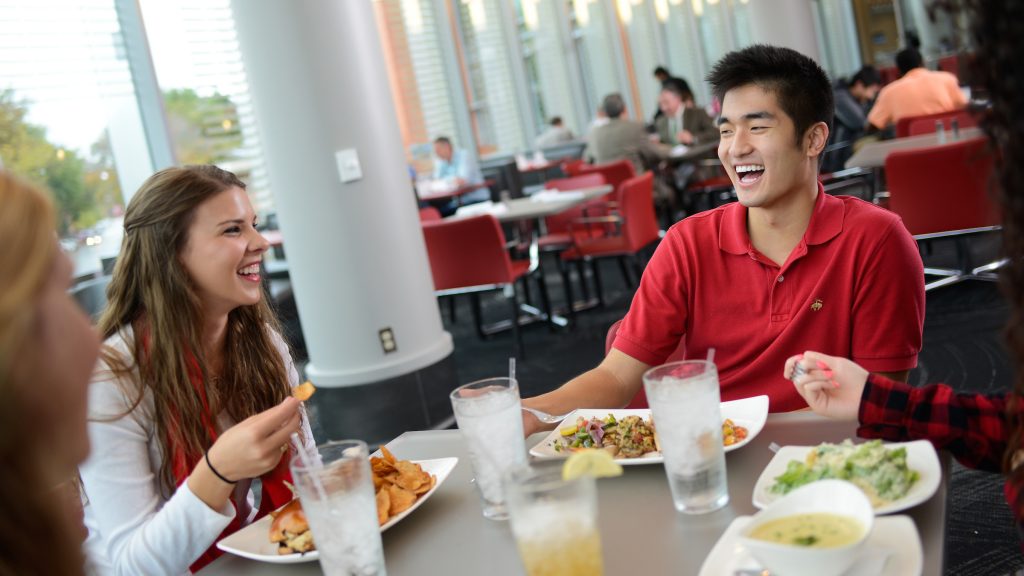
Breakfast (the morning meal) is usually informal. Students often eat in the dining hall or as they walk to class, and may take a juice or coffee to class. Lunch (mid-day meal) is also usually informal. Students will eat in the dining hall or get a quick bite to eat at a food court or fast-food restaurant. Some families will have a more formal “Sunday dinner” where the whole family gathers to eat a large mid-day meal together. The evening meal, called “supper” or “dinner,” is usually the largest meal of the day. Many students and families go out to dinner (to eat at a restaurant) one or more times a week. Some restaurants and families have dinner served to each guest, while others have “buffet style” where you can help yourself to as much food as you want. If you are offered food that you don’t want, it is acceptable to say “No, thank you.” Many Americans also eat small snacks during the day, between meals.
Cleanliness

Most Americans have a high level of personal cleanliness – they have habits of showering or bathing, washing their hair, brushing their teeth, and using deodorant/antiperspirant every day, as well as washing their clothes and cleaning their room/home regularly. You will notice exceptions, as many college students will run to class in their pajamas (just out of bed), or they may have a very messy room or car. Levels of cleanliness vary around the world.
Greeting & Friendship
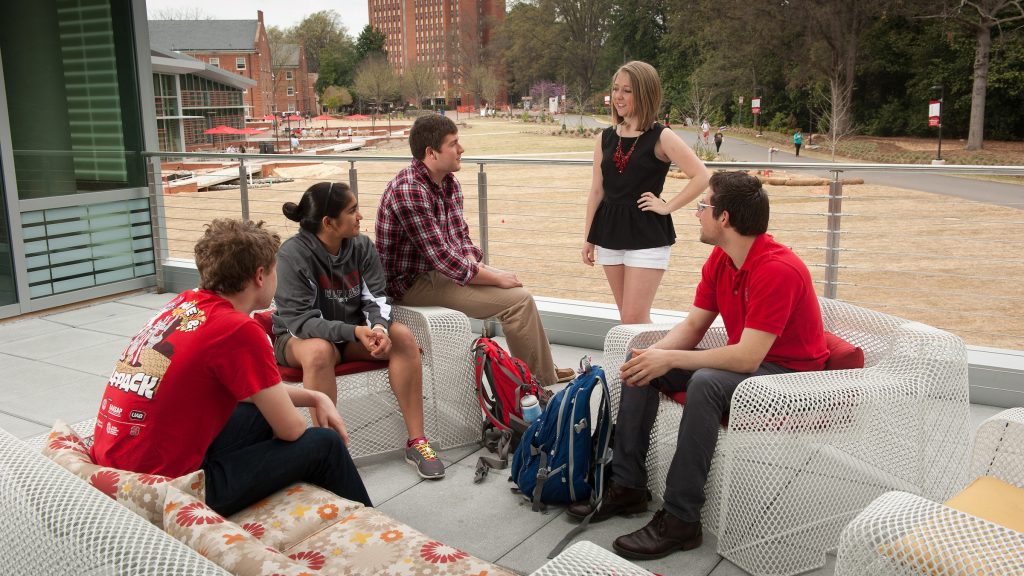
Most Americans are informal when greeting. A handshake, smile, and “Hey, how are you?” are common forms of greeting. A common response is to smile and say, “Fine, thanks. How are you?” Americans often call each other by first names, even when they are of different social positions or ages and even when meeting for the first time. If you are meeting someone for the first time, it is fine to address them as Mr./Mrs./Ms., Professor, Doctor, etc. If they prefer to go by a name rather than a title, they will let you know.
Many Americans, particularly students, often have a large number of casual friends or acquaintances, while some people have a small group of very close friends. Most Americans do not hold hands or embrace in public unless they are with close friends, boyfriend/girlfriend, or members of their own family.
When leaving, many Americans will say, “See you later,” even if you have not made plans to see each other at another time. This is not usually an invitation, but another way of saying goodbye. Others say, “Take care,” meaning they hope you will be in good health, wish you well, etc.
Smoking

Smoking is not allowed in most public places (classrooms, restaurants, residence halls, businesses, and others). Some places in the U.S. even have laws against smoking within a certain distance of public places. Smoking is permitted in most outdoor public areas (parks) and many restaurants. It is best to check with someone before you smoke indoors. It is usually acceptable to excuse yourself to go elsewhere to smoke.
The above information is intended only as a brief introduction to American culture. You will learn a lot more by experiencing this culture for yourself.